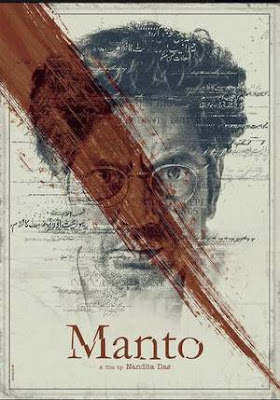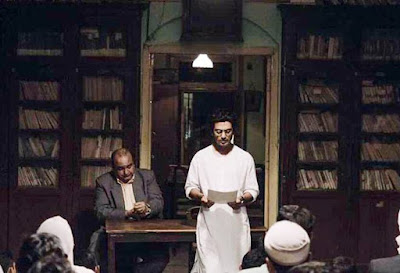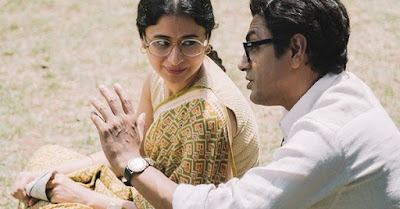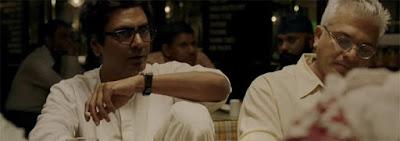Saadat Hasan Manto (1912-1955) is among the most popular and translated of Urdu short story writers. His best stories on the India-Pakistan partition remain searing and nightmarish like a deep wound that doesn’t easily heal.
Manto, the long-awaited Nandita Das film chronicles Manto’s final life-altering years.
Manto movie story
We first meet Manto (Nawazuddin Siddiqui) as a Bombay-based short story and film-writer in the mid-1940s. The writer is reasonably happy, with his family and friends.
The partition and its hate-fueled aftermath force Manto to settle in post-independence Lahore with his wife (Rasika Dugal) and two young daughters.
As alcohol and chain-smoking takes over Manto’s life, ill-health, poverty, depression and loneliness follow. Manto also writes his best stories during this period.
Interwoven to the narrative are some of his stories, most reflecting Manto’s hellish echoes on the death of humanity – the shocking revelation of Thanda Gosht (Cold Meat), Dus Rupay (Ten Rupees) and tellingly, Toba Tek Singh.
Gentle beginning, sombre end
Don’t look for Bollywood escapism in Manto. Those who have read Manto’s works will understand and go with the movie’s melancholy tone.
Prostitutes, rapists, murderers, pimps, madmen, murderous rioters and vile hearts featured prominently, in matter of fact, straight as a ‘chalk-drawn line on the blackboard’ Manto stories.
Yet, even for readers of literature, Manto doesn’t flow straight like one of the writer’s timeless, gritty stories, though the superb art direction (the amazingly recreated 1940s) transports us to the era and the performances add depth.
Several questions are not answered. No scene towers or stands out in sheer intensity.
We never see Manto experiencing the horrors of partition first-hand. The story inspirations are mentioned fleetingly. We do not exactly know where they sprout from, but for vague suggestions.
Manto review
I do admire how Das stays true to Manto’s spirit, makes no fictional assumptions.
She unravels his middle-aged life with painstaking sincerity, but the screenplay lacks bite and has an in-transit feel.
Manto is still an admirable attempt at what was always going to be a cliffhanger storytelling achievement.
Just how does one engagingly tell of a self-destructive, angst-ridden, stubborn, fading writer?
Nandita Das gets there in huge bits and parts, but by the end credits, the effect is of part-exhaustion and part-satisfaction of viewing a smoky, adorned-with-sadness film.
Performances rule!
Nawazuddin Siddiqui makes a good cut of the slowly sinking Manto, a balanced, intelligent performance.
Raskia Dugal is apt as the supportive wife, as is Tahir Raj Bhasin as Sundar Shyam Chadda: the film star friend.
Rajshri Deshpande as noted Urdu writer and friend Ismat Chughtai makes most of her short role.
Actors like Rishi Kapoor, Paresh Rawal, Ranvir Shorey, Divya Dutta, Gurdas Maan, Bhanu Uday, Neeraj Kabi and writer, poet and lyricist Javed Akhtar (movie debut!) play brief, important parts.
Manto, the nowhere man
The film finally comes together in its last ten minutes, when the lunatic narrative of Toba Tek Singh is compared with Manto’s plight.
Like Toba Tek Singh and the film’s beautifully done title design, Manto is caught between the illogical parting of two nations and a city he longs for.
The end.
Manto, the movie
There is so much in Manto to love, the well-etched characterization, the detailed and evident documentation and research, some great dialogues, the understated beauty of the Urdu language, and the stark visuals.
Despite all its strengths, Manto doesn’t hit as hard as the director’s first, Firaaq (2008).
I recommend Manto, though mitigated, this is a sincere, slow burn of a biopic drama.



